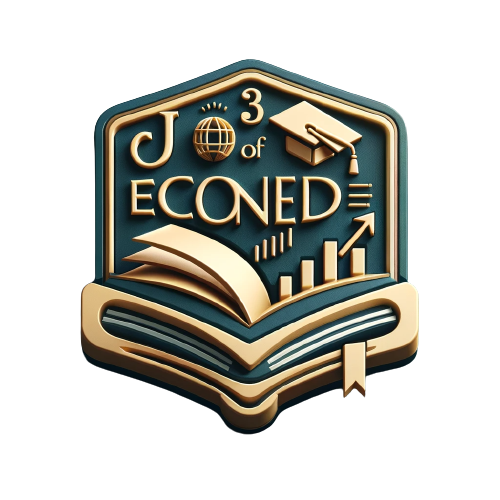Building Muscle on a Plant Based Diet
Table Of Contents
Effective Strategies for Building Muscle on a Plant Based Diet
Key Takeaways
- Understanding a plant-focused nutrition approach is essential for muscle development.
- Core guidelines play a crucial role in enhancing muscular strength.
- Protein-rich plant options are vital for effective muscle building.
- Strategic meal organization is important for achieving muscle growth.
- Nutritional aids can enhance the process of muscle advancement.
- Effective training routines are necessary for increasing muscle size.
Building Muscle On A Plant Based Diet | Understanding a PlantBased Diet
A plant-based diet offers a diverse range of options that can effectively support muscle building. For those committed to building muscle on a plant based diet, understanding the nutritional components is crucial. Plant-based foods such as legumes, nuts, seeds, and whole grains provide essential protein and amino acids necessary for muscle growth. These plant foods contribute not only to muscle development but also to overall health, making them an excellent choice for individuals pursuing a plant-based lifestyle. By focusing on nutrient-dense plant-based diets, one can ensure adequate calorie intake while promoting muscle gains through proper dieting and meal planning. Embracing a plant-based approach can lead to successful muscle-building outcomes while promoting well-being.
- Prioritize protein-rich foods like lentils, chickpeas, and quinoa in meals.
- Include a variety of nuts and seeds such as almonds, chia, and hemp for healthy fats and protein.
- Incorporate whole grains like brown rice, oats, and barley for sustained energy.
- Plan meals around essential amino acids by combining different plant protein sources.
- Maintain adequate calorie intake to support muscle growth through snacks and balanced meals.
- Stay hydrated to support overall physical performance and recovery.
- Consider consulting a nutritionist for personalized meal planning tailored to your muscle-building goals.
Building Muscle on a Plant Based Diet | Nutritional Components of PlantBased Diets
A focus on nutritional components is vital for anyone interested in Building Muscle on a Plant Based Diet. Plant-based diets can provide the necessary building blocks for muscle growth by incorporating high-quality protein sources such as legumes, nuts, and plant-based meats. These foods are rich in dietary fibers, which not only contribute to a high-fiber diet but also support overall digestive health. Properly selecting these components ensures that the body receives adequate amino acids required for repairing muscle tissue and enhancing muscle strength.
Building Muscle on a Plant Based Diet also involves understanding the role of macronutrients. Proteins derived from plants help in developing lean muscle mass while promoting muscle fiber growth. Carbohydrates and healthy fats, essential in these diets, supply energy needed for workouts and recovery. By balancing these macronutrients, individuals can optimize their nutrition to support muscle tissue development and improve overall physical performance.
Benefits of Choosing PlantBased Proteins
Choosing plant-based proteins offers numerous advantages for those focused on building muscle on a plant-based diet. These proteins, primarily sourced from legumes, promote the development of muscle fibers and facilitate the repair of muscle tissues. A high-protein diet centered on plants can provide all the essential amino acids necessary for muscle growth. This dietary approach supports individuals seeking to enhance their muscle mass without resorting to a high-fat diet, making plant-based proteins an optimal choice.
Plant-based proteins contribute not only to muscle development but also align with a healthy diet. Incorporating legumes, nuts, and whole grains into meals ensures a rich array of nutrients that bolster muscle cell function. A thoughtful mix of high-protein foods can optimize recovery periods and sustain energy levels during workouts. This synergy between a healthy lifestyle and targeted nutritional choices supports effective muscle building, reinforcing the benefits of choosing plant-based proteins for those looking to increase their muscle mass.
Key Principles for Building Muscle
For those focused on Building Muscle on a Plant Based Diet, understanding the nutritional components is crucial. A well-balanced vegetarian diet rich in essential macronutrients supports the development of skeletal muscle fibers and prevents muscle loss. Bodybuilders often consult dieticians for tailored dietary recommendations that align with their workout regimens. Emphasizing a caloric surplus while incorporating a variety of proteins from legumes, nuts, and seeds enhances muscle cell growth. While low-carbohydrate diets may appeal to some, a balanced intake ensures that both energy and muscle recovery are optimized, enabling bodybuilders to achieve their goals effectively.
Importance of Caloric Surplus
A caloric surplus is crucial for anyone interested in building muscle on a plant-based diet. To effectively achieve muscle-building results, one must consume more calories than the body burns. This means incorporating a variety of veg nutritional options within the plant kingdom to ensure that the caloric intake meets the demands of an active lifestyle. Including plant-based protein sources in larger quantities, such as legumes and nuts, can help create that necessary surplus. For those following a muscle-building plan, focusing on nutrient-dense foods will provide the energy needed to fuel workouts while maximizing muscle gains.
Strength eating plants requires a strategic approach to caloric consumption. It’s essential to include plant-based fats, which not only contribute to overall caloric intake but also support health and hormone production. Energy-dense foods like avocados and nut butters can make reaching a caloric surplus easier without excessive volume. Incorporating options like plant-based protein/energy bars can also be an effective way to achieve the surplus needed to support muscle growth. For anyone serious about building muscle on a plant-based diet, understanding and implementing these caloric principles is a fundamental aspect of long-term success.
Essential Macronutrients for Muscle Growth
A successful muscle-building journey relies heavily on the right balance of macronutrients. For those focused on Building Muscle on a Plant Based Diet, understanding the role of protein is critical. Plant-based protein sources, such as legumes, nuts, and seeds, provide essential amino acids necessary for muscle recovery and growth. Many plant foods also include valuable plant-based nutrients that contribute to overall health, making it easier to incorporate them into a balanced diet. Emphasizing a variety of plant-based food items ensures that one meets their protein needs while enjoying a diverse range of flavors.
Carbohydrates and fats also play vital roles in optimal muscle building. A well-structured plant-based mediterranean diet emphasizes healthy fats, like those found in avocados and olive oil, which support hormone production and overall recovery. Carbohydrates from fruits, whole grains, and starchy vegetables provide the necessary fuel for workouts, enhancing performance and endurance. By focusing on these essential macronutrients, individuals can effectively support their muscle-building goals without sacrificing nutritional quality on their journey toward building muscle on a plant-based diet.
| Macronutrient | Sources | Benefits |
|---|---|---|
| Protein | Legumes, nuts, seeds, tofu, tempeh | Supports muscle recovery and growth, provides essential amino acids |
| Carbohydrates | Fruits, whole grains, starchy vegetables | Provides energy for workouts, enhances performance and endurance |
| Fats | Avocados, olive oil, nuts, seeds | Supports hormone production, aids in recovery |
| Fiber | Whole grains, fruits, vegetables, legumes | Improves digestion, helps maintain a healthy weight |
HighProtein PlantBased Foods
Building muscle on a plant-based diet requires a focus on incorporating high-protein plant-based foods that serve as effective sources of nutrition. Real plant foods such as legumes, nuts, seeds, and whole grains play a crucial role in providing the necessary building blocks for muscle weight and sustaining lean muscle. These plant-based protein sources are considered plant-based protein powerhouses, offering a diverse range of nutrients essential for anyone aiming to enhance their muscle development. A well-planned diet needs to include different plant proteins to ensure that individuals receive all the essential amino acids required for optimal growth and recovery. By emphasizing these whole plant foods, it becomes possible to achieve effective muscle gains while adhering to a plant-based lifestyle.
Legumes and Their Role in Muscle Building
Legumes are a powerhouse in the context of Building Muscle on a Plant Based Diet. They provide essential plant-based proteins that contribute to muscle protein production and muscle fiber composition. A diet that includes legumes not only supports existing muscle but also helps preserve muscle mass, making them ideal for both casual exercisers and dedicated plant-based athletes. Incorporating legumes into plant-based meals or snacks can create a robust foundation for those looking to increase their strength and size.
From lentils to chickpeas, legumes offer diverse options to enhance muscle-building efforts. These foods are high in essential nutrients and can easily be added to a variety of plant-based products, enriching the overall nutritional value of meals. For individuals focused on Building Muscle on a Plant Based Diet, legumes provide the building blocks necessary for new muscle synthesis. As a staple in many plant-based diets, they play a critical role in optimizing performance and recovery for those who choose a plant-centric lifestyle.
Nuts, Seeds, and Whole Grains: A Nutritional Overview
Nuts, seeds, and whole grains play a crucial role in Building Muscle on a Plant Based Diet. These food groups offer a variety of plant-derived protein sources essential for muscle function. Leaning towards a diet heavy in these items can provide sufficient protein to support muscle gain. Unlike an animal-based diet, which is often higher in saturated fats, incorporating many plant products can enhance overall health while also promoting muscle size and strength. The rich nutrient profile of these foods includes healthy fats, fiber, and antioxidants, all contributing to enhanced muscle adaptation and recovery after intense workouts.
Including various plant proteins from nuts, seeds, and whole grains is vital for achieving optimal results in muscle-building endeavors. Whole grains like quinoa and brown rice provide essential amino acids that work synergistically with other proteins to support exercise-induced muscle protein synthesis. The combination of healthy fats from nuts and seeds with the carbohydrates and proteins found in whole grains creates a balanced profile that fuels the body effectively. For anyone following a diet type focused on Building Muscle on a Plant Based Diet, these components are fundamental in generating the energy needed to maximize workout efficiency and promote muscle growth.
Meal Planning for Muscle Gains
Effective meal planning plays a crucial role in building muscle on a plant-based diet. Focusing on muscle-recovery meals that include a variety of plant proteins helps to optimize muscle protein synthesis and ensures that your body receives the necessary nutrients for growth. Incorporating whole plants into your dietary pattern enhances your intake of essential vitamins and minerals, which can significantly influence your body’s muscle strength and overall performance. Different diets may affect how efficiently one can gain muscle, so it’s important to understand how each dietary component works together, including the possible need for dietary supplementation. Careful timing of meals, particularly around training sessions, can further improve trainability, allowing for greater progress in achieving big muscles.
Creating Balanced Meal Plans
Balanced meal plans are essential for those interested in Building Muscle on a Plant Based Diet. A diet developed with the guidance of a dietitian can help ensure that plant protein quality meets your body’s needs. Incorporating plant-based protein isolates, such as pea or rice protein, can enhance protein intake effectively. These supplements can aid in stimulating muscle growth, especially for individuals transitioning from a meat-based diet. Omnivorous bodybuilders can benefit from understanding how to integrate these dietary components into their routines, promoting optimal muscle growth alongside their training.
Incorporating a variety of food sources is crucial for achieving adequate nutrient intake. Legumes, nuts, and whole grains provide essential amino acids and energy necessary for skeletal muscle adaptation. A well-structured meal plan should focus on dietary/sports supplement consumption, including plant protein powder, to cover any nutritional gaps. Regularly distributing meals throughout the day allows for better nutrient absorption, which is vital for muscle recovery and growth. This strategy supports effective dietary/sports routines, creating a solid foundation for anyone dedicated to Building Muscle on a Plant Based Diet.
Timing Meals and Nutrient Distribution
Strategically timing meals can significantly enhance the process of Building Muscle on a Plant Based Diet. Focusing on post-prandial muscle protein synthesis is crucial for those aiming to increase overall muscle mass. Consuming a protein-packed diet at specific intervals fuels skeletal muscle growth, encouraging the body to optimize dietary-based food compositions that support muscle fiber transformation. This approach contrasts with high-fat diets that may impede muscle recovery and strength.
Consideration of nutrient distribution throughout the day is equally important for effective muscle development. Regularly spaced meals that concentrate on plant-based proteins can leverage the plant-based advantage, promoting skeletal muscle strength in a sustainable manner. A well-structured dietary pattern ensures adequate intake of essential amino acids, reinforcing the body’s ability to direct nutrients towards muscle repair and growth, ultimately leading to enhanced results in Building Muscle on a Plant Based Diet.
| Meal Timing | Recommended Foods | Benefits |
|---|---|---|
| Breakfast | Oatmeal with almond butter and berries | Rich in carbohydrates and protein, kickstarts metabolism |
| Post-Workout | Protein smoothie with pea protein, spinach, and banana | Supports muscle recovery and replenishes glycogen stores |
| Lunch | Quinoa salad with mixed vegetables and chickpeas | Provides essential amino acids and fiber for muscle building |
| Snack | Hummus with carrot and cucumber sticks | Healthy fats and protein for sustained energy |
| Dinner | Lentil stew with brown rice | High in protein and nutrients promoting muscle repair overnight |
Supplements to Support Muscle Development
A well-rounded approach to Building Muscle on a Plant Based Diet can greatly benefit from strategic dietary choices and specific supplements. Plant-based protein powders, such as plant-based soy protein, offer an excellent source of essential amino acids that support molecular muscle adaptations and enhance muscle tissue results. These powders can be easily incorporated into a plant-based protein shake, providing a convenient solution for post-workout muscle recovery. Understanding the impact of dietary composition and timing can lead to effective dietary manipulations, ensuring optimal muscle glycogen replenishment and overall nutrient distribution. A diverse diet that includes various sources of plant-based proteins not only aids in muscle growth but also supports sustained energy levels, critical for effective workouts and muscle development.
Protein Powders: Options for PlantBased Diets
Protein powders have become essential tools for plant-based athletes seeking to optimize their nutritional habits. Many individuals transitioning from a beef-containing diet find that these supplements provide a convenient source of protein to aid in muscle anabolism. Options such as pea protein, brown rice protein, and hemp protein cater to various dietary preferences while delivering the necessary nutritional properties for effective post-workout meals. These choices align perfectly with the goals of a vegan bodybuilder committed to Building Muscle on a Plant Based Diet.
Choosing the right protein powder can dramatically influence diet-induced changes in muscle mass and recovery. Plant-based protein powders are often easier to digest than their dairy counterparts, making them suitable for those who might experience discomfort from traditional whey. Integrating these supplements can ensure that even those following a strict dietary choice can meet their protein requirements effectively. Understanding the role of protein powders in Building Muscle on a Plant Based Diet allows athletes to fuel their workouts while supporting muscle burns during recovery.
Other Helpful Supplements for Muscle Building
A well-structured nutrition plan is essential for vegan bodybuilders aiming for maximum muscle gain. Incorporating hearty plant proteins such as lentils, chickpeas, and quinoa can significantly enhance muscle repair and recovery. Supplements like branched-chain amino acids (BCAAs) can support positive muscle protein turnover, helping to optimize the muscle net protein balance. For those making dietary changes, ensuring an adequate intake of essential nutrients will contribute to the overall success of Building Muscle on a Plant Based Diet.
Beyond the basics, several targeted supplements can assist in achieving specific muscle-building goals. Creatine monohydrate is popular among many athletes, providing energy for high-intensity workouts and promoting growth in lateralis muscle fiber. Plant-based protein powders can support daily protein needs, especially when paired with dishes like plant-based meatballs. Sticking to a habitual vegan diet while including these supplements can lead to significant results in muscle development, aiding your journey of Building Muscle on a Plant Based Diet.
Successful Workouts for Muscle Growth
Effective workouts for muscle growth hinge on several key factors that support the goal of Building Muscle on a Plant Based Diet. A consistent focus on habitual protein intake is essential, as it lays the groundwork for optimal nutritional intake necessary for increasing skeletal muscle mass. A thorough dietary analysis can reveal how different dietary protein sources affect various muscle groups. Plant-versus-animal protein teams create different outcomes based on their nutritional composition, influencing how effectively multiple muscle groups respond to exercise. This is particularly relevant in the plant-based jungle, where interest from bodybuilders continues to grow. Knowledge of how to balance dietary intake with proper training techniques is vital for maximizing the benefits of a plant-based diet in muscle-building endeavors.
- Incorporate a variety of plant-based protein sources, such as legumes, nuts, and seeds, to ensure a complete amino acid profile.
- Focus on compound exercises, like squats and deadlifts, which engage multiple muscle groups and promote overall growth.
- Schedule regular strength training sessions, aiming for at least three to four times a week to stimulate muscle repair and growth.
- Monitor progress by tracking workouts and adjusting weights and repetitions to continuously challenge the muscles.
- Stay hydrated and ensure proper recovery through adequate sleep and rest days to prevent injuries and promote muscle repair.
- Consider consulting a nutritionist or dietitian to tailor a plant-based diet specifically for muscle gain.
- Stay consistent and patient, as muscle growth is a gradual process that requires time and dedication.
Conclusion
Building Muscle on a Plant Based Diet can be incredibly effective with the right nutritional strategies and planning. While omnivorous diets nutrition often includes a wide array of protein sources, a varied diet rich in plant-based options can support muscle growth just as well. Focus on key muscle groups, ensuring that you consume adequate amounts of legumes, nuts, seeds, and whole grains. Incorporating free weight exercises into your routine enhances the development of exercised muscle groups. Emphasizing health-promoting diets alongside structured training can lead to impressive results in muscle development while maintaining overall well-being.
FAQS
How can a plant-based diet influence muscle growth and strength in athletes?
A plant-based diet can significantly impact muscle growth and strength, as dietary patterns influence trainability and recovery in athletes. Dietitians often recommend high-protein diets that include plant-based meals/snacks to ensure adequate nutrient intake for muscle-building. Incorporating plant-protein supplementation can help stimulate muscle growth, sustain muscle, and enhance overall body muscle strength. Many athletes following the plant-based path, such as Robert, have effectively adapted their diets to support muscle cells and reach their fitness goals.
How does a plant-based diet impact the ability to build muscle and train effectively for athletes?
A plant-based diet can significantly influence muscle-building from a nutritional standpoint. Athletes who adopt a plant-based diet like Robert’s may find that it makes building muscle easier, as this type of diet includes various nutrients that promote muscle recovery and growth. The diet alters the way skeletal muscle responds to training, enhancing its trainability. It’s important to ensure that the diet includes adequate protein sources, as a plant-based diet relies on nutritional options such as legumes, grains, and nuts to support muscle growth. While a plant-based diet doesn’t inherently hinder muscle development, attention must be paid to dietary sources to ensure sufficient intake of essential amino acids and related nutrients relevant to bodybuilders.
What are the benefits of a plant-based diet for those looking to build muscle from a muscle-building standpoint?
A plant-based diet can significantly influence the ability to build muscle and train effectively. From a muscle-building standpoint, a plant-based diet, such as the one discussed by Robert in his book, provides essential nutrients that support skeletal muscle development. Furthermore, the dietary ALA found in certain plant foods can enhance the diet’s influence on trainability, making it an appealing choice for bodybuilders interested in optimizing their muscle-building potential. While some may think a plant-based diet isn’t sufficient for muscle growth, many athletes have successfully built muscle on a well-planned plant-based diet.
How does a plant-based diet influence the trainability of bodybuilders aiming for muscle growth?
A plant-based diet can significantly support bodybuilders in their quest to build skeletal muscle. Research indicates that a well-planned plant-based diet, like the one endorsed by Robert, can effectively meet the nutritional needs essential for optimal muscle development and enhance the overall diet influences trainability. With appropriate attention to nutrient intake, bodybuilders can thrive on a plant-centric regimen that fuels their interest in fitness and muscle performance.
How does a plant-based diet, such as that advocated by Robert, affect the development of skeletal muscle and the nutritional approach towards bodybuilders’ interests?
A plant-based diet, as Robert suggests, can be beneficial for building muscle as it provides essential nutrients and supports skeletal muscle towards growth. Many bodybuilders have developed an interest in adopting a plant-based diet to meet their nutritional needs while effectively enhancing muscle growth and overall performance.
What nutritional strategies can bodybuilders employ on a plant-based diet to support their muscle development interests?
For bodybuilders following a plant-based diet, it’s essential to focus on comprehensive nutritional strategies that support muscle development. They should incorporate a variety of protein-rich plant-based foods, such as legumes, nuts, and seeds, to optimize their plant-based muscle gains. Additionally, considering insights from experts like Robert can enhance their understanding of how a plant-based diet can align with their nutritional needs. Tailoring their meals to include appropriate macronutrient ratios—while also being mindful of meals rich in vitamins and minerals—will greatly benefit their overall diet and muscle-building interests.
How can bodybuilders incorporate a plant-based diet as suggested by experts like Robert to enhance their muscle development interests?
A plant-based diet, as advocated by experts like Robert, can be beneficial for bodybuilders looking to enhance their muscle development. This dietary approach emphasizes nutrient-dense foods that provide the essential macronutrients and micronutrients needed for muscle growth. Bodybuilders can focus on high-protein plant foods such as legumes, tofu, tempeh, nuts, seeds, and whole grains. By tailoring their nutritional strategies within a plant-based diet, bodybuilders can effectively meet their nutritional needs while pursuing their muscle development interests.
How can bodybuilders benefit from a plant-based diet and strategies advocated by experts like Robert in their muscle-building efforts?
Bodybuilders can benefit from a plant-based diet by adopting nutritional strategies that align with their interests in muscle development. Experts like Robert suggest that focusing on a nutrient-rich diet, including diverse protein sources, can enhance muscle growth while meeting the specific dietary needs of bodybuilders. These strategies can help optimize performance and promote overall health while pursuing muscle-building goals.
How can athletes interested in muscle development incorporate a plant-based diet inspired by experts like Robert into their regimen?
Athletes interested in enhancing their muscle development can adopt a plant-based diet by following nutritional strategies that align with expert recommendations, such as those advocated by Robert. This diet focuses on whole foods, rich in protein sources like legumes, nuts, and seeds, to support their muscle growth interests while ensuring they meet their nutritional needs effectively.
What nutritional recommendations does expert Robert provide for bodybuilders interested in optimizing their muscle development on a plant-based diet?
Expert Robert recommends that bodybuilders interested in optimizing their muscle development focus on a plant-based diet rich in whole foods, such as legumes, grains, nuts, and seeds. This nutr diet emphasizes protein sources that enhance muscle recovery and growth while addressing the specific interest bodybuilders have in achieving their fitness goals.





